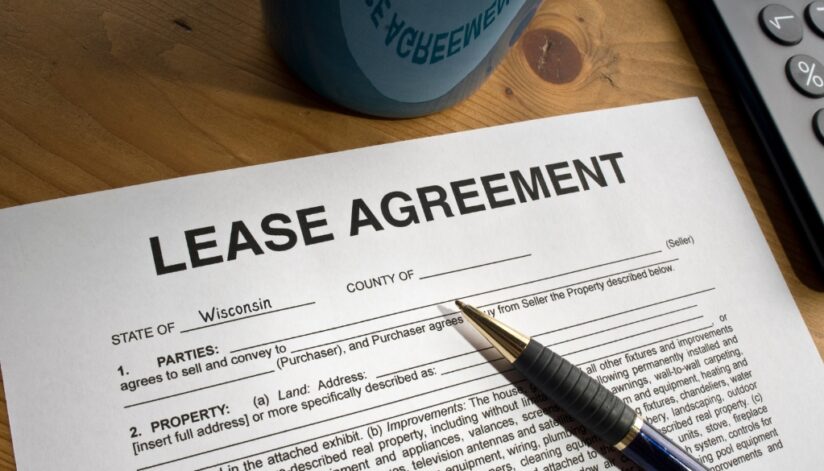Wisconsin Tenant Rights: Essential Laws Renters Must Know
When renting a home or apartment, understanding your Wisconsin tenant rights is crucial for ensuring a fair and secure living situation. Whether you’re a tenant or a landlord in the Coulee Region, knowing these laws can help prevent disputes and protect your interests. This blog post from Bosshard Parke explores the key tenant rights laws in Wisconsin, their impact on both renters and landlords, and recent changes that you need to be aware of.
Key Wisconsin Tenant Rights
Wisconsin tenant rights encompass a variety of laws designed to protect renters and outline the responsibilities of landlords. Here are some of the most important aspects:
1. Security Deposits
Under Wisconsin law, landlords may require a security deposit to cover potential damages or unpaid rent. Key points include:
- Limit on Amount: While Wisconsin does not specify a maximum amount, the deposit should be reasonable relative to the rent.
- Return of Deposit: Landlords must return the security deposit within 21 days after the tenant moves out, minus any deductions for damages beyond normal wear and tear.
- Itemized Deductions: If deductions are made, landlords must provide an itemized list explaining the reasons.
2. Habitability Standards
Landlords are required to maintain rental properties in a habitable condition. This includes:
- Basic Repairs: Ensuring that plumbing, heating, and electrical systems are functioning properly.
- Health and Safety: Addressing issues such as mold, pest infestations, and structural damage.
- Compliance with Codes: Adhering to local building and health codes to ensure the property is safe for tenants.
3. Right to Privacy
Tenants have the right to privacy in their rental units. Landlords must adhere to the following:
- Notice Before Entry: Landlords must provide reasonable notice (typically 12 hours) before entering the rental property, except in emergencies.
- Reasonable Hours: Entry should occur during reasonable hours, avoiding early mornings or late nights.
4. Anti-Retaliation Protections
Wisconsin law protects tenants from retaliation by landlords. This means:
- No Punishment for Complaints: Landlords cannot evict or increase rent in response to a tenant’s complaints about living conditions or their exercise of legal rights.
- Legal Recourse: Tenants facing retaliation can seek legal remedies, including damages and reinstatement of tenancy.
Recent Changes to Wisconsin Tenant Rights Laws
Recent legislative changes have further strengthened Wisconsin tenant rights, providing additional protections and clarifications:
1. COVID-19 Relief Measures
In response to the COVID-19 pandemic, Wisconsin implemented temporary measures to protect tenants, such as:
- Eviction Moratoriums: Temporary bans on evictions for non-payment of rent due to pandemic-related hardships.
- Rental Assistance Programs: Initiatives to help tenants cover rent and utilities during economic disruptions.
While many of these measures have expired, some protections have been extended or made permanent, reflecting ongoing efforts to support renters.
Expired Protections:
- Eviction Moratoriums: The eviction moratoriums enacted during the height of the COVID-19 pandemic, both at the federal and state levels, were temporary measures. They have since expired, meaning that landlords are no longer barred from evicting tenants for non-payment of rent due to pandemic-related hardships. The federal moratorium ended in August 2021, following a Supreme Court ruling that struck it down.
Extended or Permanent Protections:
- Rental Assistance Programs: While eviction moratoriums have expired, rental assistance programs that were established during the pandemic have continued. These programs, such as the Wisconsin Emergency Rental Assistance (WERA), have provided tenants with financial support to cover rent and utility payments. These programs are funded through federal relief packages like the American Rescue Plan Act (ARPA) and are still available, though funds may eventually run out.
- Strengthened Eviction Procedures: In some jurisdictions within Wisconsin, eviction procedures have been adjusted to offer more protection to tenants. For example, some local courts, like La Crosse County, have mandated mediation before eviction proceedings can move forward, a practice that could remain in place even after the pandemic.
These extended measures reflect ongoing efforts to provide relief and support to renters in Wisconsin, even as the immediate health crisis of the pandemic has waned.
2. Fair Housing Amendments
Recent amendments to Wisconsin’s fair housing laws have expanded protections against discrimination, ensuring:
- Inclusive Housing Practices: Prohibiting discrimination based on race, color, national origin, religion, sex, familial status, disability, and other protected classes.
- Enforcement Mechanisms: Strengthening the ability of tenants to file complaints and seek enforcement against discriminatory practices.
Impact on Renters and Landlords
Understanding Wisconsin tenant rights is essential for both renters and landlords, as these laws define the framework within which rental agreements operate.
For Renters:
- Protection and Security: Ensures that tenants live in safe, habitable conditions and are protected against unfair treatment.
- Legal Recourse: Provides avenues for tenants to address grievances, seek repairs, or challenge unlawful evictions.
For Landlords:
- Clear Guidelines: Establishes clear rules for managing rental properties, handling security deposits, and entering units.
- Legal Compliance: Helps landlords avoid legal disputes by adhering to state laws and maintaining good tenant relationships.
Navigating Wisconsin Tenant Rights
To effectively navigate Wisconsin tenant rights, both tenants and landlords should:
- Stay Informed: Regularly review state laws and any updates to ensure compliance and awareness of rights.
- Maintain Documentation: Keep detailed records of rental agreements, communications, and any issues that arise during the tenancy.
- Seek Legal Advice: Consult with an attorney experienced in Wisconsin landlord-tenant law to address complex issues or disputes.
Conclusion
Understanding Wisconsin tenant rights is essential for maintaining a fair and lawful rental relationship. Whether you’re a tenant seeking protection and security or a landlord aiming to manage your property effectively, being informed about these laws can help you navigate the complexities of the rental market.
If you have questions about tenant rights or need legal assistance with a rental dispute, contact Bosshard Parke today. Our experienced attorneys in La Crosse and Sparta, Wisconsin, are here to help you understand your rights and ensure that your interests are protected.
Disclaimer: This article is for informational purposes only and does not constitute legal advice. For specific legal guidance, please consult with a qualified attorney at Bosshard Parke.




